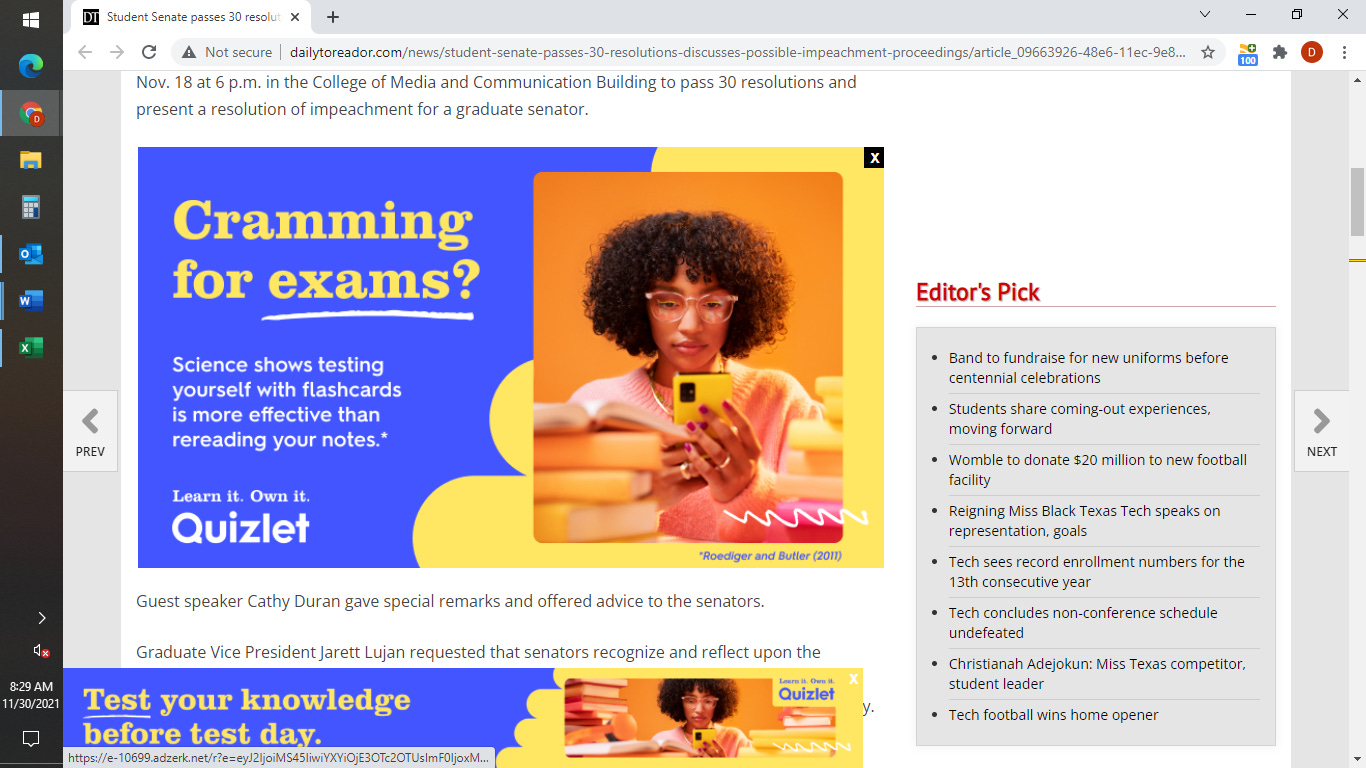Essay Mills Offer Their Own Plagiarism Reports
Plus, Texas Tech students back replacement for Proctorio. Plus, IHE does good on integrity reporting.
Issue 75
To subscribe to “The Cheat Sheet” enter your e-mail here:
To share “The Cheat Sheet” click here:
To listen to “The Cheat Sheet” click here:
Essay Mills Offer Plagiarism Check Guarantees, Other Inducements
Times Higher Ed (THE), which continues to provide leading coverage of cheating and academic misconduct, has another recent story on the inducements that essay sellers use to lure students, including supposed plagiarism checks.
THE reports:
Commercial cheating vendors claim to use the academic integrity tools favoured by many universities to attract customers and vouchsafe the originality of their work.
Some, the story says, offer checks by industry leader Turnitin. The company says their products are not involved. Translation: the essay sellers are lying.
Shocking, I know.
But the important part of the story is that essay sellers and other cheating companies are considerably more sophisticated than most teachers and schools realize. THE continues:
Australian researchers have found that such [discount] ploys are common, ranging from a A$2 incentive for providing feedback to a 50 per cent discount for bulk orders and guaranteed refunds for students who fail to earn high distinctions. The websites also use gamification, artificial intelligence “and other functions that universities, in some cases, are only beginning to introduce”.
Yup. In most cases, cheating companies are playing at a different level than colleges are. In fact, most colleges aren’t playing at all, taking what one researcher called “the ostrich method” to academic integrity (see Issue 58).
Quoting Charles Darwin University (AUS) lawyer and researcher Guzyal Hill (see Issue 66),
The biggest surprise was the ease of accessing services, with many sites featuring 24-hour chat functions.
“You can request call-back,” she said. “You get follow-up. They keep sending emails. I was thinking it would be difficult to access these sites. It’s not. It’s very easy.”
Texas Tech Students Back Replacement for Proctorio
According to the student newspaper at Texas Tech University, the student senate approved a resolution supporting a change in remote proctoring providers.
Details aren’t abundant but the paper says the resolution was:
supporting the university provost office’s selection of a new proctoring system to replace Proctorio.
That’s not uncommon (see Issue 3 or Issue 59).
But what caught my eye about the Texas Tech story wasn’t what happened. It’s that - in my version at least - the news comes directly under a nice big color ad for cheating company Quizlet - one of the big three cheating providers.
It’s just further evidence that these cheating companies aren’t hiding. They’re not operating in the dark. They are literally buying ads in the student newspaper.
Inside Higher Ed on Curbing Misconduct
Inside Higher Ed’s (IHE) relationship with academic misconduct has been, shall we say, sketchy - notably partnering with cheating provider Course Hero and egregiously misstating cheating statistics (see Issue 49 or Issue 53).
That’s why it’s noteworthy that IHE ran a long article on misconduct recently. It quotes actual experts and correctly cites actual data. In other words, it’s pretty good.
Some highlights include this data on cheating:
Four in 10 students believe cheating occurs somewhat or very often at their college, but only 6 percent say they have been accused of either cheating or plagiarism in a course
If you count those who say cheating occurs “slightly often,” the rate goes to 62%. That’s compared to 18% of students who said cheating occurs “not very often.”
It also cites data showing:
53% [of] students who say it’s very or somewhat easy to cheat on course assignments when classes are online
44% [of] students who say it’s very or somewhat easy to cheat on tests when classes are online
The IHE story quotes Eren Bilen, a professor at Dickinson College who has researched cheating, saying,
If the students have an option to choose between cheating and not cheating—cheat to get an A, don’t cheat to get a C—the temptation is just too strong. If they have the ability, they go for it.
And academic integrity expert David Rettinger of the University of Mary Washington saying to school administrators,
There’s a problem on your campus whether you know it or not.
There is.
Rettinger also says,
You can’t just say, ‘I’m going to trust students’ and go from there.
You can’t.
The article addresses honor codes and remote proctoring - correctly quoting experts who say codes aren’t the answer to misconduct on their own and that proctoring can deter misconduct, even though some students don’t particularly like it.
The article is a good read.
To conclude, I’ll highlight this nugget from the piece, which was news to me. According to a spokesperson for the school, Southern New Hampshire University,
generally uses online proctoring only for math placement testing and nursing certification tests
Since Southern New Hampshire is one of the largest providers of online degrees, that they don’t proctor their assignments or exams is pretty shocking.
And this is probably a good place to remind folks that the President of Southern New Hampshire University, Paul LeBlanc, is on the Board of Directors of Chegg, which is probably the largest cheating company on Earth.
Choices have clearly been made.



